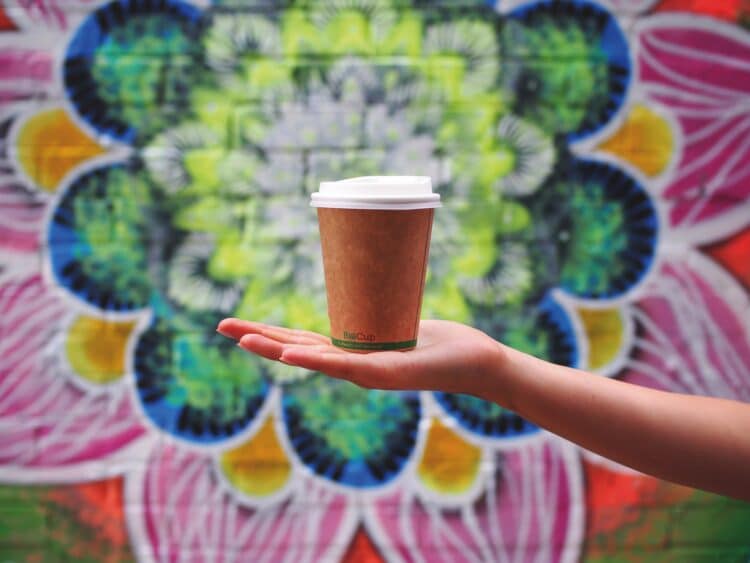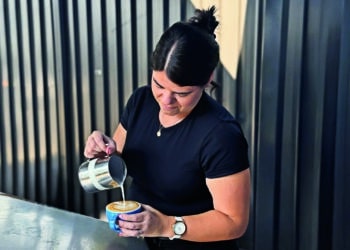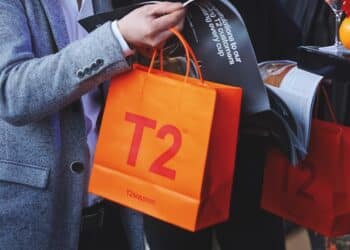With 19 years’ experience and 22 product innovation awards under its belt, BioPak is a pioneer in the sustainability space. Its Founders reveal how collaboration with the coffee industry fuels product development and why they’ll continue to fight for better composting infrastructure.
When Gary Smith and Richard Fine established BioPak in 2006, little thought was given to what happens to a single-use coffee cup once it had been discarded. While takeaway hot beverages were taking off in Australia and New Zealand, so was the market for single-use paperboard cups lined with a thin layer of polyethylene plastic.
The friends recognised the ‘take, make, dispose’ model wasn’t a sustainable option for the planet, but most consumers, café owners, and roasters hadn’t yet become conscious of its impact on the environment. Through BioPak, they sought to disrupt the industry by introducing compostable food-service packaging made from sustainably sourced renewable materials. Yet, Gary and Richard had an up-hill struggle to convince the industry there was a problem that needed solving.
Fast-forward almost 20 years, however, and a significant amount of single-use coffee cups in Australia are now compostable – a feat the Co-Founders thought to be almost impossible when they started out.
“In 2006, no one had given packaging a second thought. There was absolutely no awareness from the general public,” says Richard.
“It took a significant amount of time for consumers to even acknowledge what happened to the coffee cup they were drinking from. It wasn’t until 2017 when we had the great war on waste that we reached a tipping point and suddenly the world became aware of the evils of conventional single-use plastics.”
The original compostable cup
Being one of the early pioneers in the sustainable packaging space, product innovation has been a pillar of BioPak’s growth and success. It all started with its first Bioplastic Lined Coffee Cup, which was brought to market in 2009.
“Our current Bioplastic Lined Coffee Cup is still the same design we launched 16 years ago. Our first customers weren’t necessarily looking for the most sustainable option but something to make them stand out in what was a very crowded coffee market at the time,” says Gary.
The cups are lined with PLA (polylactic acid), a bioplastic made from plant-based resources which can be composted at industrial facilities. In 2021, BioPak launched a sister product that uses an aqueous coating in place of PLA. The water-based lining is certified home-compostable, although it does contain a very small amount of synthetic polymer created using fossil fuels.
Aware of the sustainability limitations of the aqueous coating and market interest in an even more sustainable product, after years of development in 2024 the company came up with a solution that was both home compostable and free of fossil-fuels based materials. BioPak’s PHA (polyhydroxyalkanoate) lining is produced by microbes during the fermentation of renewable resources.
The product was a first in the Australian market, but the team aren’t resting on their laurels and their search for materials with even stronger sustainable credentials continues.
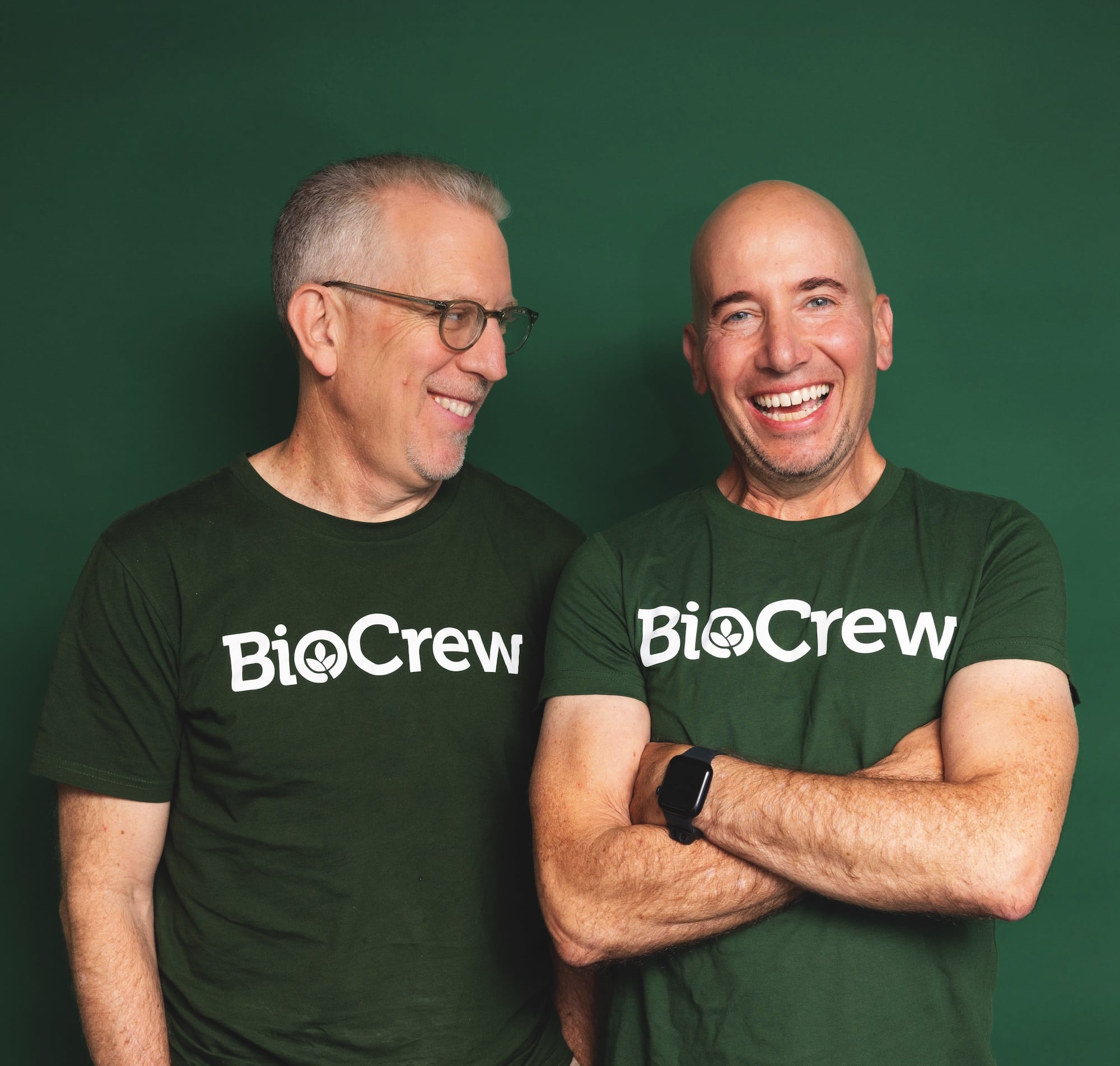
Customer-led innovations
Over the years, innovation has come in many forms for the company – from introducing PFAS-free sugarcane-pulp takeaway containers to bringing a paper straw to market before most consumers had seen a turtle have a plastic version removed from its nares.
While Gary, Richard, and the wider team are constantly volleying ideas for new innovations, they say nearly all the projects and adaptations they undertake are inspired by feedback from their customers.
“We work with thousands of customers each month across the five countries we operate in, so we naturally have constant customer feedback. It’s often the very small tweaks we make to existing products that can massively streamline a café’s workflow,” says Gary.
“We’re always looking for ways to improve our products and use fewer raw materials to make the most sustainable options. A lot of our innovative work is also in creating bespoke products for our larger customers, which could be adapting packaging size to suit their serving or making containers easier to separate when stacked.
“These aren’t always headline-making innovations, but rather everyday practical solutions that make our clients more efficient.”
Richard highlights it’s not only the structure and functionality of BioPak’s products that have led the company’s innovation projects over the years – it’s also their design.
“Specifically in the café sector, our innovation not only comes in the raw materials but also in the length and breadth of our range. We were one of the first brands to start putting artwork on their cups and now everyone is doing it. Every two months we release a new art series that helps promote up and coming artists,” he says.
“Today, more than 50 per cent of our business is working with customers to bring their own cup designs to life.”
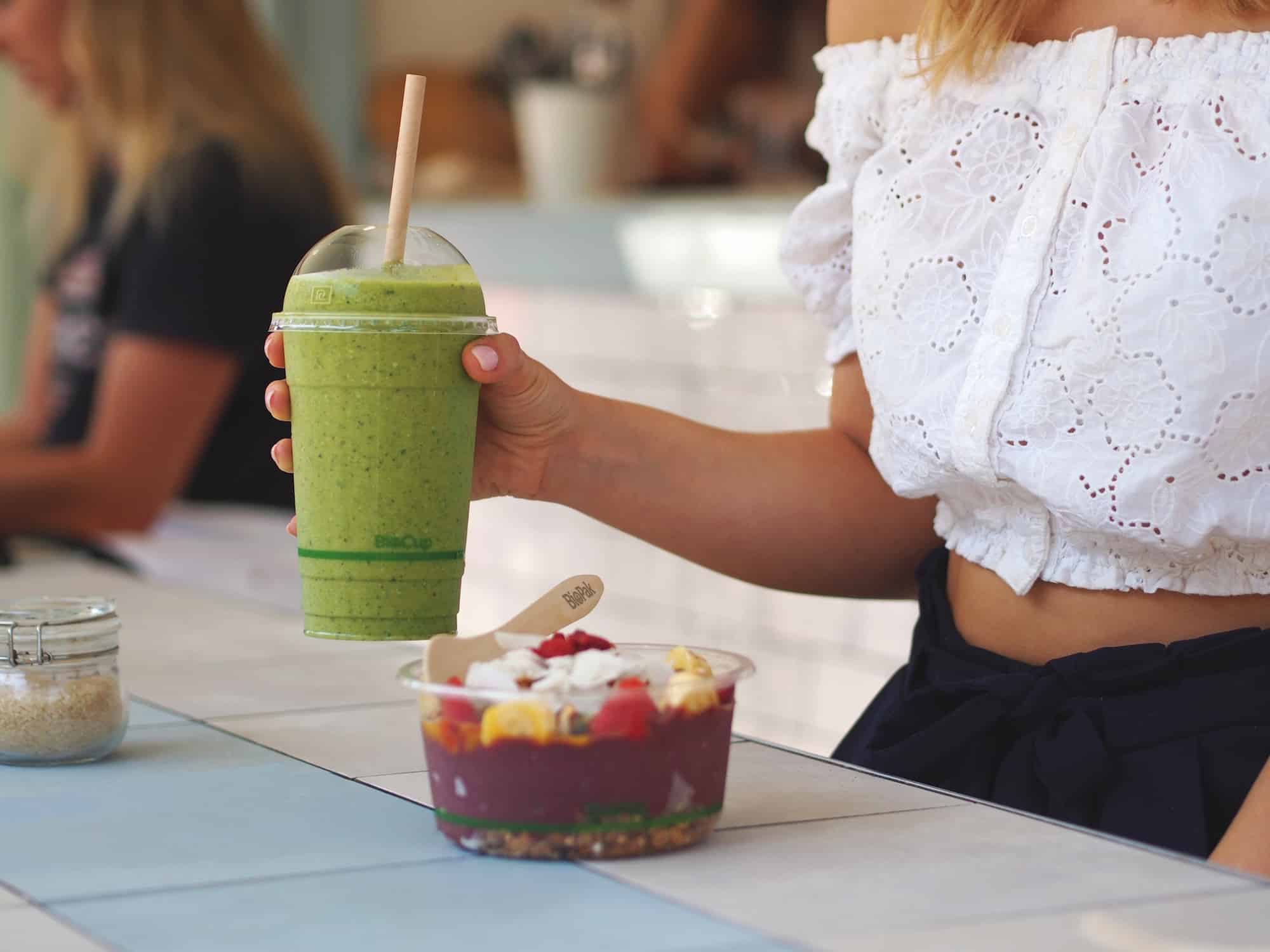
Joining forces
As BioPak continues to grow and release new industry-first products to the market, acquisitions are a major focus for the brand. In August 2025, the B Corp acquired Queensland packaging company Bygreen, which has operated in the sustainable packaging space for more than 30 years.
“Acquisition is very much part of our roadmap. We have worked in opposition to Bygreen for many years – it’s a fantastic company with values much aligned to our own,” says Gary.
“Merging enables us to combine our expertise and strengthen our portfolio to offer a wider range of products for our customers. For example, Bygreen has incredibly strong paper straws that can last for hours without deteriorating. These are the kinds of innovations we want to add to our catalogue.”
In April 2024, BioPak made a move that surprised some in the industry when it took over reusable cup company Huskee – a product designed to eliminate the use of single-use packaging.
“The Huskee acquisition really shows our commitment to the evolution of this industry. Investing in that technology and the solutions for reuse is incredibly important to us,” says Richard.
“We believe there will always be a need for both reusables – where it’s practical – and single-use – where the infrastructure or washing facilities aren’t available. I would like to believe in four- or five-years’ time we could destroy half of our business of disposable cups, but establish half of our business with reusable cups via the Huskee Borrow system. It would be much more cost-effective and sustainable for our customers.”
More broadly, both Gary and Richard believe there needs to be increased alignment between industry and government to improve the future of sustainable products in Australia and New Zealand.
“Currently, the system to be able to dispose of compostable items is fragmented and disjointed. We are constantly speaking with government organisations, but it’s very frustrating. There is a solution right in front of us that’s working in South Australia [where compliance with composting standards is enforced] that other states refuse to align with,” says Gary.
“Alongside our product innovation, we will continue to fight for composting infrastructure because organic recycling is the real sustainable solution for food-based packaging such as coffee cups.”
For more information, visit biopak.com
This article appears in the October 2025 edition of BeanScene. Subscribe HERE.

